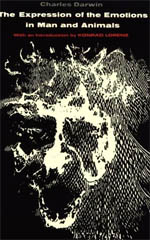Of course, it’s Darwin’s birthday too
 Martin Buber is just the tip of the proverbial iceberg. Based on the overwhelming anecdotal evidence, this week must have one of the highest-ever concentrations of famous birthdays. In addition to the Lincoln bicentennial to which it seems we’ve been building up—especially in Illinois—for over a year now, Darwin’s equally talked-about 200th birthday also occurs on February 12.
Martin Buber is just the tip of the proverbial iceberg. Based on the overwhelming anecdotal evidence, this week must have one of the highest-ever concentrations of famous birthdays. In addition to the Lincoln bicentennial to which it seems we’ve been building up—especially in Illinois—for over a year now, Darwin’s equally talked-about 200th birthday also occurs on February 12.
In recognition of the occasion, the New York Times devotes today’s Science Times to a suite of stories about Darwin and his lasting influence, not the least of which is this column on “Charles Darwin: Live & In Concert.”
The Darwin special inspired our own roundup, which begins with Darwin’s own The Expression of the Emotions in Man and Animals, a volume which, as today’s Times put it, traces “connections between humans and animals in the muscles used to express emotions such as grief and terror.”
In Darwin and the Emergence of Evolutionary Theories of Mind and Behavior, Robert Richards discusses the celebrated scientist’s ideas about instinct, reason, and morality, against the background of Darwin’s personality, training, scientific and cultural concerns, and intellectual community.
 The relationship between science and religion is, of course, one of the issues most popularly discussed today in light of Darwin’s work, and David Sloan Wilson’s Darwin’s Cathedral takes the radical step of joining the two, but not in the usual fashion. The key, Wilson argues, is to think of society as an organism-one in which morality and religion are adaptations that allow groups of humans to function as a coherent whole.
The relationship between science and religion is, of course, one of the issues most popularly discussed today in light of Darwin’s work, and David Sloan Wilson’s Darwin’s Cathedral takes the radical step of joining the two, but not in the usual fashion. The key, Wilson argues, is to think of society as an organism-one in which morality and religion are adaptations that allow groups of humans to function as a coherent whole.
The Jewish Tradition and the Challenge of Darwinism takes a more specifically focused approach to this issue, exploring how Jewish discussions of evolution have been shaped by the intersections of faith, science, philosophy, and ideology in specific historical contexts.
 And, finally, Keith Stanovich’s The Robot’s Rebellion (excerpt) responds to decades of research in evolutionary biology and cognitive science that have led many esteemed scientists to the conclusion that, according to the precepts of universal Darwinism, humans are merely the hosts for two replicators (genes and memes) that have no interest in us except as conduits for replication. Accepting and now forcefully responding to this decentering and disturbing idea, Stanovich provides the tools for the “robot’s rebellion,” a program of cognitive reform necessary to advance human interests over the limited interest of the replicators and define our own autonomous goals as individual human beings.
And, finally, Keith Stanovich’s The Robot’s Rebellion (excerpt) responds to decades of research in evolutionary biology and cognitive science that have led many esteemed scientists to the conclusion that, according to the precepts of universal Darwinism, humans are merely the hosts for two replicators (genes and memes) that have no interest in us except as conduits for replication. Accepting and now forcefully responding to this decentering and disturbing idea, Stanovich provides the tools for the “robot’s rebellion,” a program of cognitive reform necessary to advance human interests over the limited interest of the replicators and define our own autonomous goals as individual human beings.